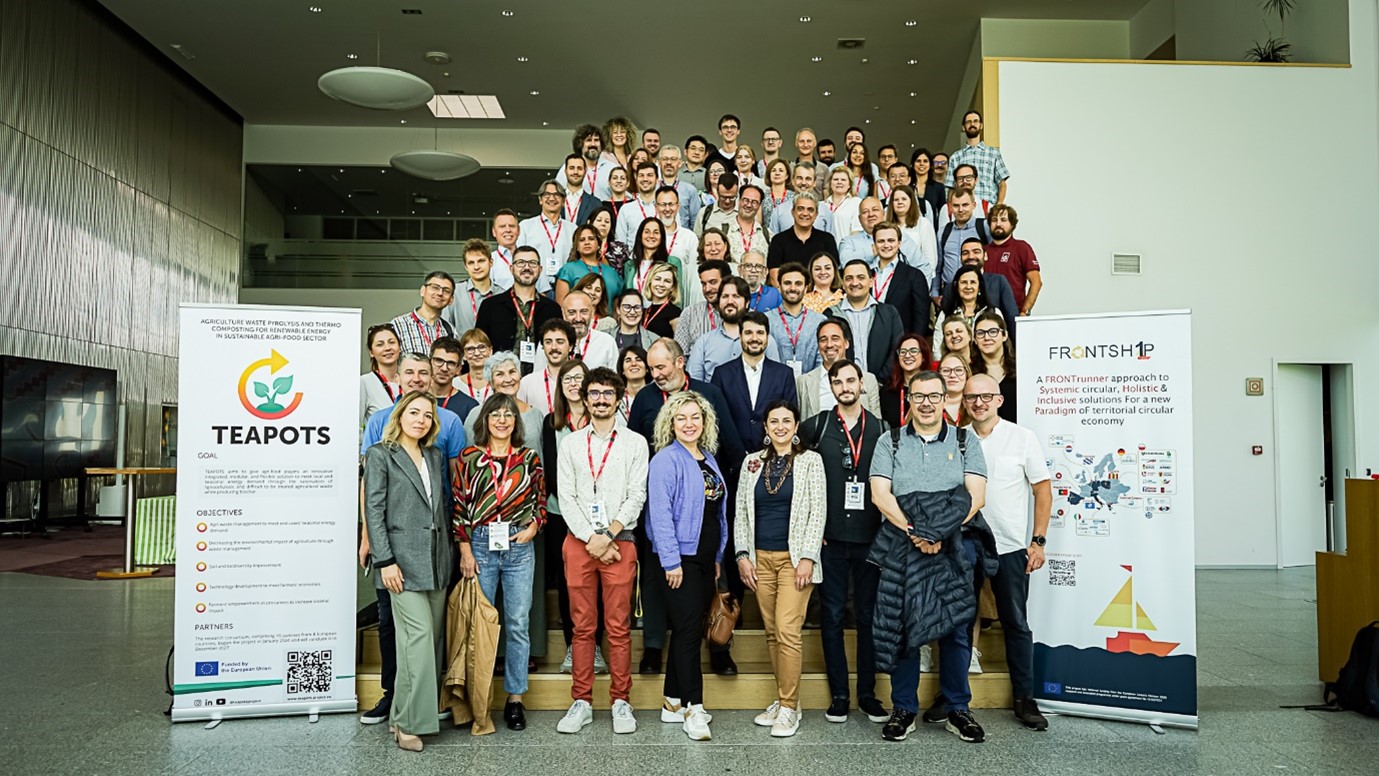EURADA plays an important role in both projects. In FRONTSH1P, we oversee communication, dissemination and exploitation, as part of which we organised a workshop on exploitation in Braga, while in K-CCRI EURADA has a horizontal support function and is involved in most of the tasks without leading any of them.
FRONTSH1P celebrates its 33rd month of activity and forges new partnerships
On 10 and 11 July 2024, FRONTSH1P flew to Portugal to celebrate its 33rd month of activity during its General Assembly, and to attend a cross-project Open Space Technology Workshop. Two busy working days brought together the partners of FRONTSH1P with those of the TEAPOTS project in Braga, at the International Iberian Nanotechnology Laboratory (INL) headquarters.
An Open Space Technology Workshop committed EURADA and all the other participants during the first day. The mixed working groups discussed four macro topics: citizens' engagement and participatory processes, regions and SMEs' engagement, companies’ involvement and business development, and regional ecosystems. A preliminary analysis of barriers and challenges then led the group to come up with possible drivers and solutions to be implemented in their respective ecosystems.
On the second day, we had the chance to meet all the 35 partners of the project during our General Assembly where the presentation of two new members, Stowarzyszenie Łódzki Obszar Metropolitalny & KTH Royal Institute of Technology, started the work of the day.
The morning was dedicated to the presentation of the Work Packages and the preliminary results of the various project actions. A lot of work has been done in the previous years and the fruits are beginning to show. Following this, in the afternoon, three collective workshops engaged the consortium partners: the Lasagna Workshop where the coordinator STAM asked the partners to reflect on the technical, social and economic implications of the project with the final aim of gathering inputs for a future publication; the Stakeholder engagement Workshop, where, with the intention of enlarging the network of interested and involved figures in the project, several strategic stakeholders of the Região do Norte of Portugal was invited to the event to share with them our journey and involve them in future actions; and the Exploitation Workshop.
Within the European Project Cycle Management (EU PCM), communication, dissemination and exploitation (CDE) aim to leverage all project partners’ and stakeholders’ combined networks to maximise the impact of the project’s activities and results on specific key targeted groups.
The exploitation session led by EURADA started with a general reminder of the concepts of results, exploitation and dissemination, and the path to follow to go from the first to the latter and demonstrate the success of an EU project. “No use, no impact” has been the principle driving the whole sessions, which in turn aimed to identify the final Key Exploitable Results (KERs) of the FRONTSH1P project.
Over the past months, various analyses of the possible outcomes, their Unique Value Proposition, possible early adopters in the market and partners involved, led to the identification of 18 possible outcomes that could be exploited by the project. With the help of KPMG Poland, EURADA drove a discussion among partners, diving into the proposed KERs related to the FRONTSH1P methodology and the four Circular Systemic Solutions (Wood, Plastic, Food and Feed, and Water).
KERs need to be produced when implementing an EU project, they need to respond to the well-defined needs of the target group selected, and they have in turn to be used, and exploited, to produce outcomes. Outcomes in turn are the first step needed in order to create impact, a long-term change and benefit in the society. In light of this, the steps ahead of us now are the identification of a well-defined exploitation strategy based on detailed business plans.
A collective effort will be needed in the coming months to complete this task and be ready to approach the end of the project in October 2025.
Curious to know what products/technologies we will bring to market? Follow FRONTSH1P!
K-CCRI Consortium Meeting, Milan
In the same week prior to the FRONTSH1P General Assembly, EURADA also participated in the consortium meeting of another European project dealing with place-based approaches to the circular economy: K-CCRI. Launched in January this year, K-CCRI supports the Circular Cities and Regions Initiative by acting as a knowledge hub, consolidating and expanding the knowledge base already available to the CCRI community and providing additional advisory support.
The CCRI Knowledge Hub will offer a wide range of tools, including best practices, methodologies, reports and a digital marketplace for enabling technologies that facilitate the implementation of circular economy practices in regions and cities. It will be aimed at all European cities and regions - including those just starting their transition to the circular economy.
